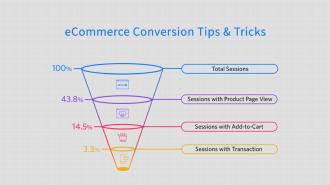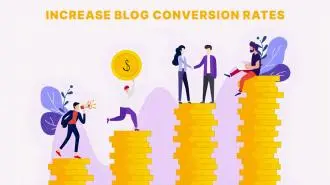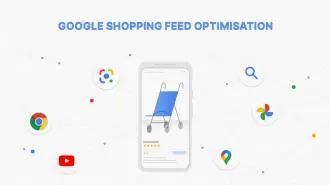Summary / TL;DR
An effective eCommerce product page should combine persuasive content, clear layout, and conversion-focused features to increase online sales. Key elements include concise headlines, detailed product descriptions in plain language, high-quality visuals, user reviews, transparent pricing, and prominent call-to-action buttons. Design best practices recommend a clean, mobile-responsive layout with consistent branding, logical content hierarchy, and persuasive messaging. Tools like A/B testing, heatmaps, and personalisation enhance performance by identifying what drives user action. Exit intent pop-ups and live chat can reduce bounce rates, and user feedback adds credibility. Pay-per-click (PPC) advertising supports conversion rate optimisation by driving targeted traffic, offering measurable data, and enabling remarketing. Partnering with a marketing performance agency can further optimise results through expert-guided strategies and continuous testing for long-term improvement.
E-commerce has become a crucial component of the retail sector in the current digital era. Businesses need to ensure that their product pages are conversion-optimised, given that more and more consumers are buying online.
Shop owners rely on conversion rates to boost profits online. To maximise sales and create an optimised product page, you need a winning combination of precise descriptions, high-quality images, detailed reviews, pricing information, secure payment methods, and an easy-to-find call to action!
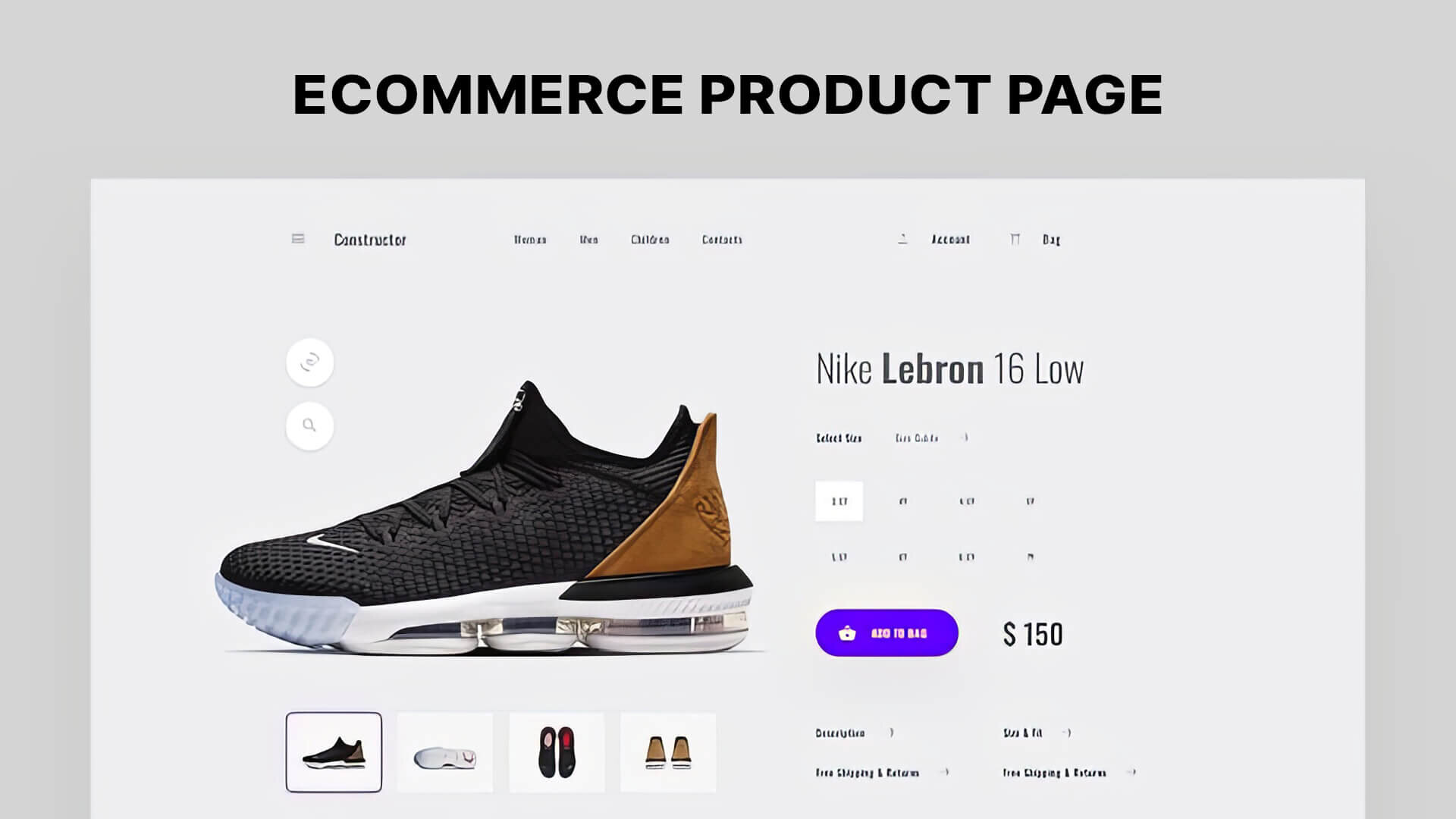
Lay out the components in an organised, visually appealing way to grow visitor satisfaction, trust, and willingness to buy. Ensure your words are powerful and persuasive — it’ll make all the difference!
We’ll go through the essential components of a product page, best practices for developing one, methods for improving conversion rates, and the function of PPC advertising in generating sales.
We’ll also dive into why partnering with a marketing performance agency is crucial for gaining real, profitable outcomes. Such an agency provides the insights and support you need to craft and execute a thorough conversion rate optimisation plan, tailored to your business goals, delivering measurable results.
The Six Key Elements of a High-Converting Product Page
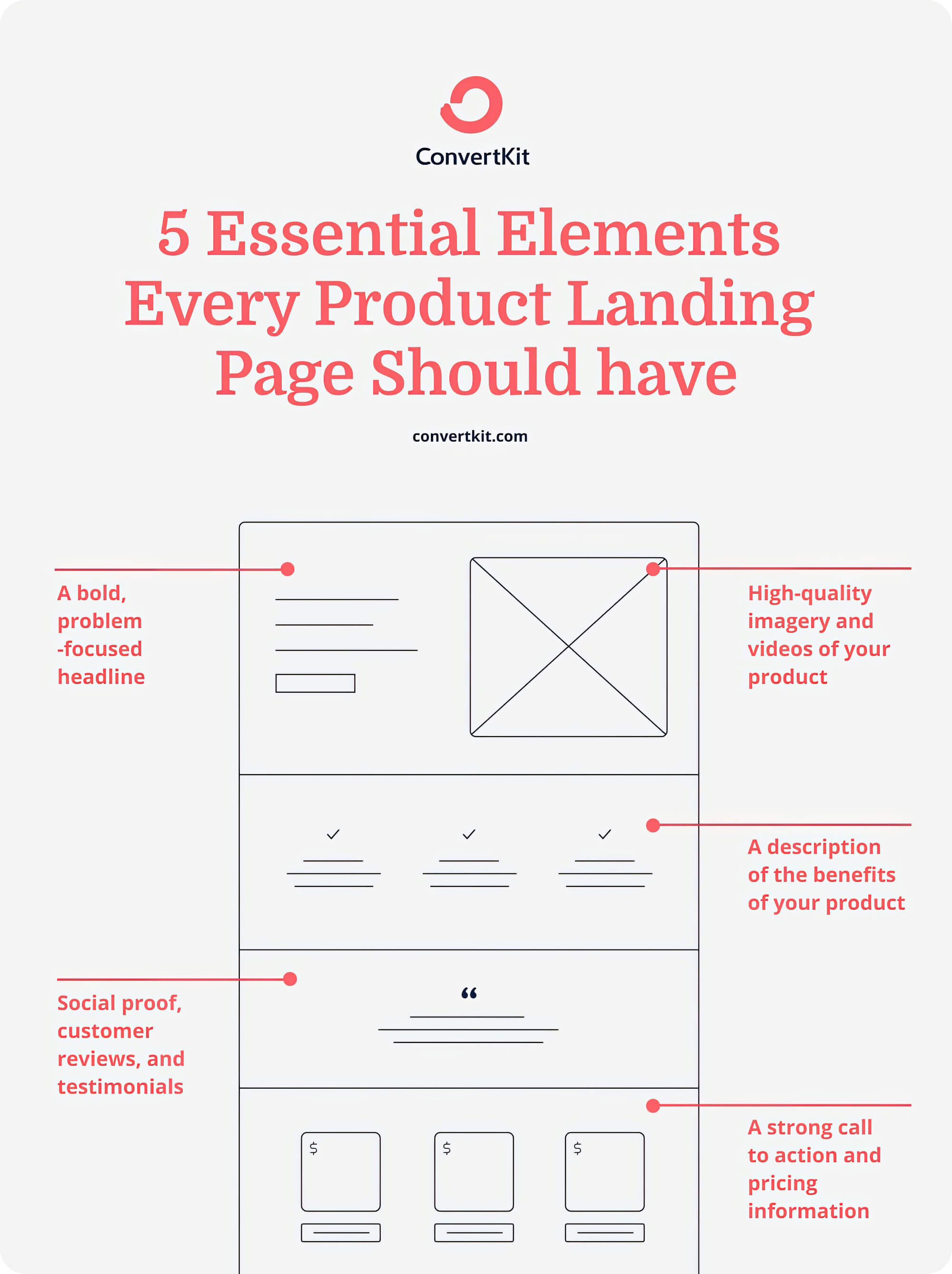
A well-crafted product page plays a vital role in converting visitors into buyers. Its key elements blend together to create a captivating shopping experience.
Creating a high-converting product page isn’t easy, but with the right combination of elements, you can create an attractive and engaging page for your customers. These six elements will ensure the optimisation of your product page for maximum conversions.
The six key elements of a high-converting product page are:
- Headline and subheadline
- Product details
- Videos and images
- Customer reviews
- Product Promotions
- CTA Button
In this section, we’ll examine each component in detail, outlining its significance and how to best use it to increase conversion rates.
1. Headline And Subheadline
The first thing a potential customer notices on your product page is the headline and subheadline. They need to catch attention and instantly communicate the key benefits and features of the product.
Your headline should be short and to the point, and the subheadline should provide additional context or information. For example, your headline could be “The Ultimate Running Shoes” when selling a pair of running shoes. Your subheadline could be “Experience Maximum Comfort and Support on Every Run.”
This combination can help draw potential customers in and convince them of the quality of your product.
2. Product Details
Your product description should be both detailed and informative. It should clearly convey what the customer is buying, highlighting the unique selling points of the product.
The description ought to be written without jargon and in plain language. Use bullet points or brief paragraphs to make the content easy to read and split.
Explain the product parts, specs, weight, benefits, and measurements. Use language that speaks directly to and addresses the issues of your target audience.
3. Videos And Images Of Products
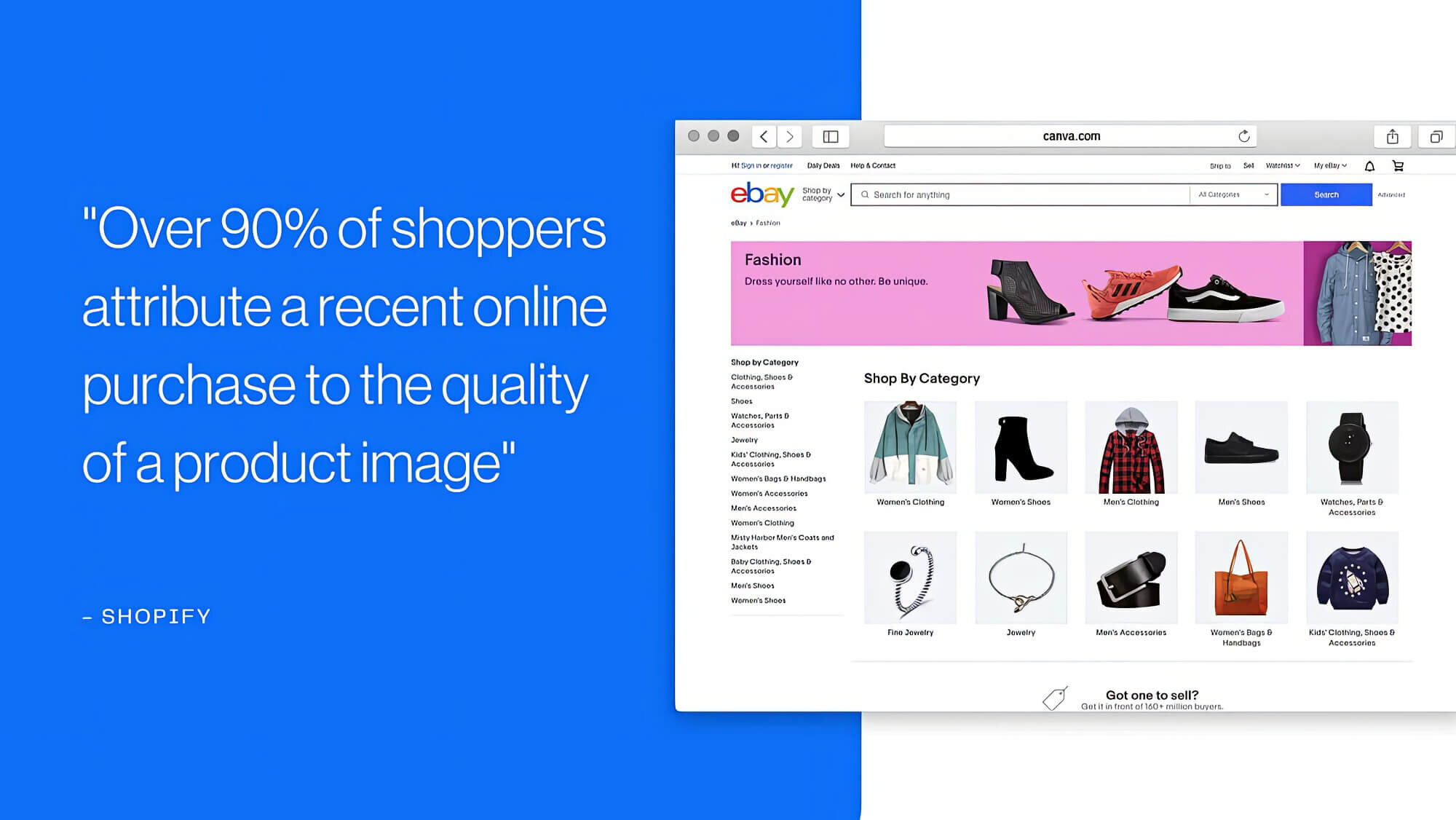
High-quality photos and videos are crucial in showcasing products, helping buyers visualise what they’re purchasing.
Customers are more likely to purchase from a brand if they have clear and detailed visuals of the product and an understanding of its functions. Videos give customers a more engaging experience, while high-res images accurately represent the product’s true size and quality.
Using videos and images helps customers make an informed buying decision, leading to higher conversion rates.
4. Reviews And Ratings Of Products
Customer testimonials and ratings are useful examples of social proof. They may be utilised to assuage potential consumers’ worries or objections while also assisting in developing trust and credibility.
On your product page, prominently display user evaluations and star ratings, either toward the top or next to the product description.
Sending consumers follow-up emails after their purchases will encourage them to post reviews. You can also make it simple for customers to leave reviews by putting a link in the email.
5. Product Cost And Promotions
Discounts or other offers should be prominently shown along with the item price. Any special deals or discounts, such as free shipping, buy one get one free, or time-limited rebates, should be highlighted.
Customers should believe they are getting a fair deal when they purchase your items. Any confusion may be eliminated, and the client purchasing process streamlined with the help of transparent pricing and offers.
6. Call-To-Action Button
The final activity in the conversion process is the call-to-action (CTA) button. It should have clear and enticing wording, be clearly displayed, and be simple to discover. Make sure the CTA button sticks out aesthetically by choosing a contrasting colour or a larger size.
The language should convey a feeling of urgency and motivate users to take action, such as “Buy Now” or “Add to Cart.” The CTA button should be accessible from wherever on the product page so buyers can simply make their purchase.
You can also increase urgency by adding text like “Limited time offer” or “Only a few left in stock.”
Best Practices For Designing A High-Converting Product Page
More than just adding a product image and description to a webpage is involved in designing a high-converting product page. You must carefully analyse the page’s design and content to create an engaging shopping experience.
In this section, we’ll discuss recommended practices for creating a product page to increase your conversion rate. We’ll review the crucial components that each great product page should have, from employing high-quality photos to writing persuasive language.
By adhering to these design best practices, you may increase the conversion rate of your product page:
Use a Simple, Sleek Design
A simple, minimalist design helps customers focus better on the products by reducing clutter. Limit the variety of fonts and visuals, and stick to a clear colour palette.
Utilise white space to visually separate items and improve the page’s natural flow. A simple layout may help speed up page loading, which greatly influences conversion rates.
Ensure Your Brand Is Consistent
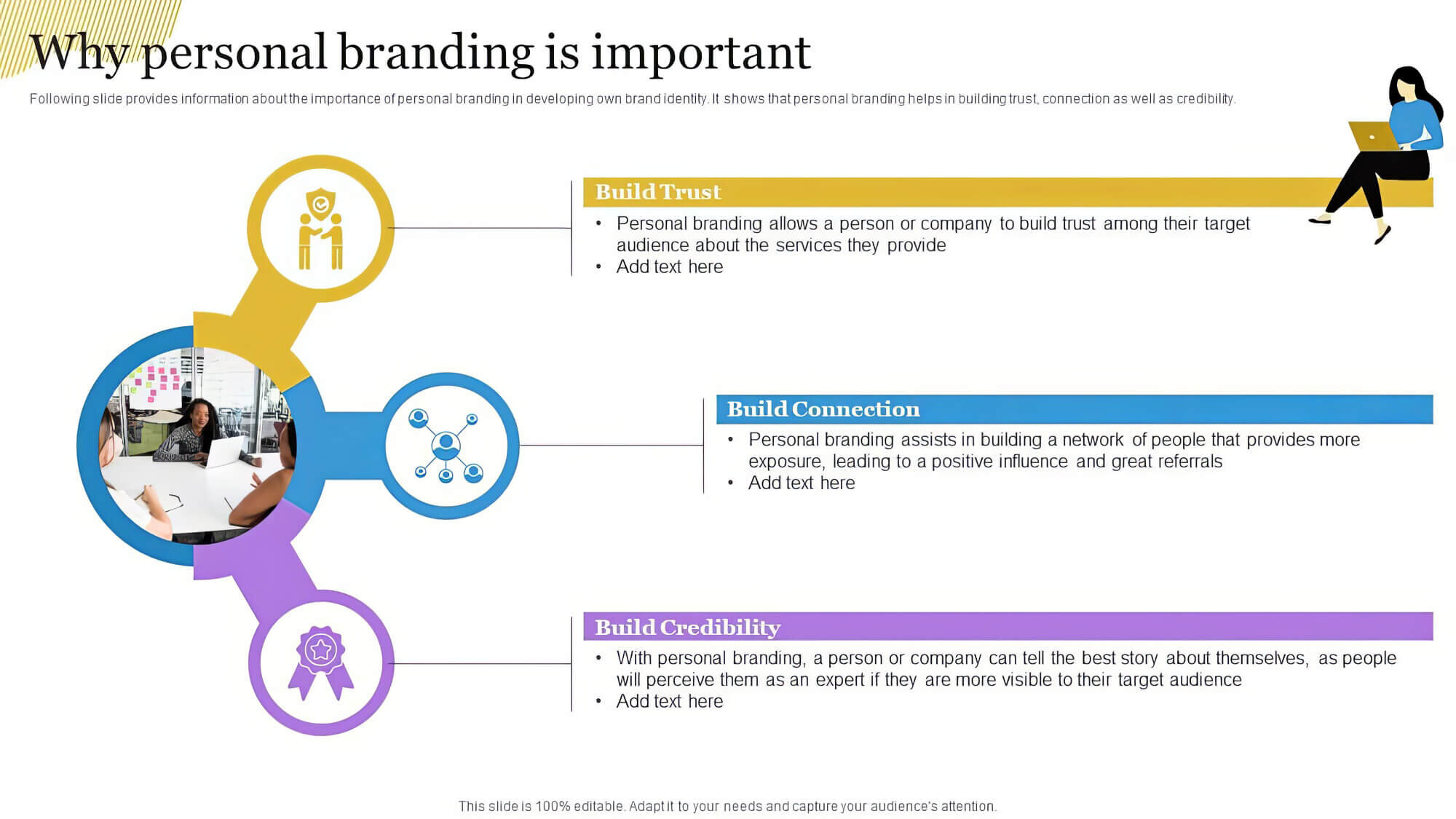
Your product page should be consistent with your brand’s rest to present a professional and cohesive image. Use your brand’s typeface, colour scheme, and logo across the page. This may increase consumers’ faith in your brand. The page may create a good initial impression by using consistent branding.
Use A Clear Hierarchy
The title, product image, and call-to-action button should be the most prominent parts of your product page and should be organised to draw customers’ attention to them.
Use bigger font sizes and bold lettering to make key items stand out. Stack similar components together and utilise space to distinguish them visually.
A logical hierarchy aids in customer navigation of the website and helps them find the information they require more quickly.
Use Persuasive Writing
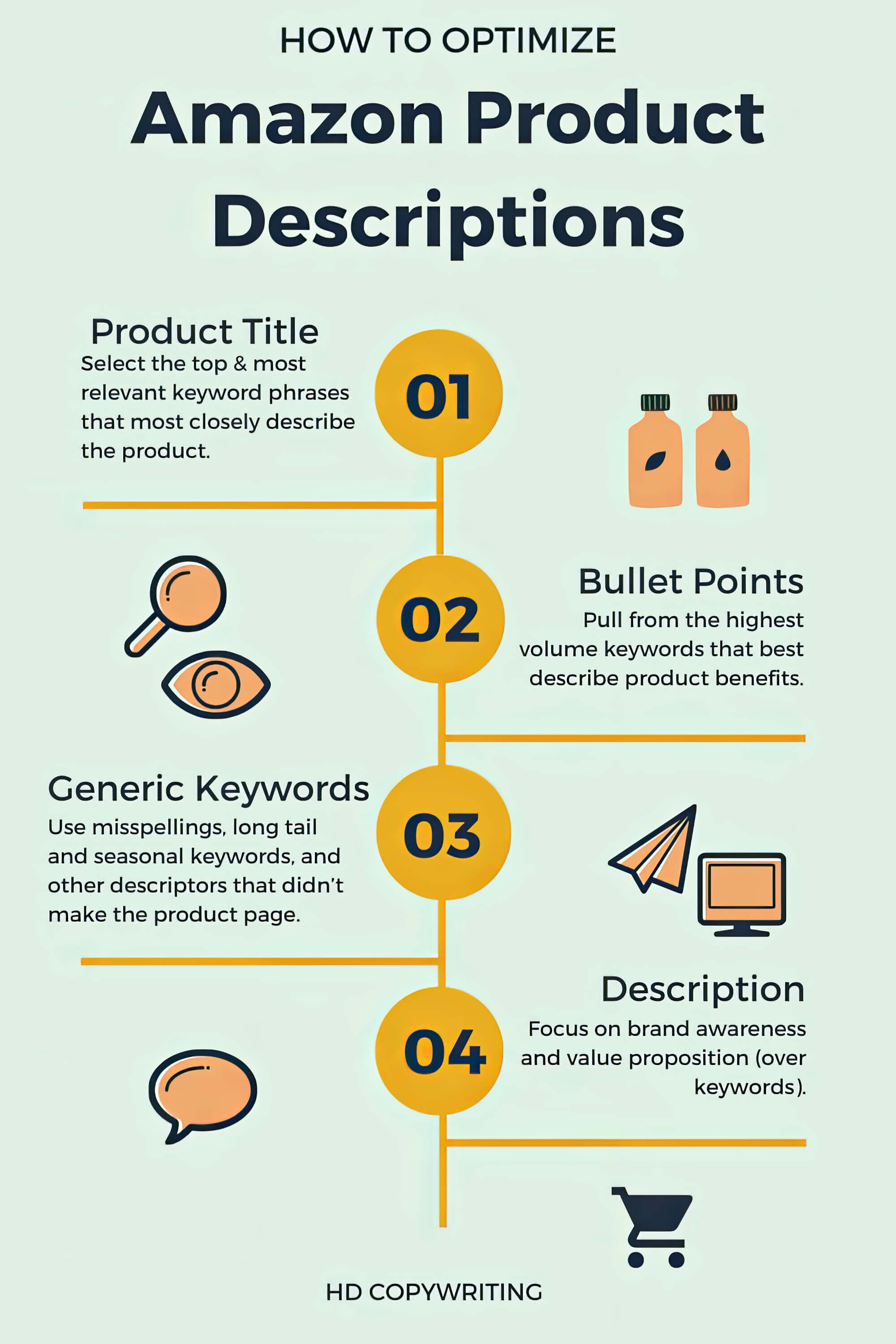
You must be persuasive and instructive in your product description. Use language that speaks directly to and addresses the issues of your target audience. Focus on the product’s merits and underline how it differs from others. Use bullet points or short paragraphs to break up the text and make it easier to read.
Consider using strong words and expressive language to evoke a sense of urgency and encourage consumers to buy.
Implement a Responsive Design
Your product page should be optimised for all platforms, including desktops, laptops, tablets, and smartphones. Utilise a responsive design that modifies the layout and content to fit the device’s screen size.
This may guarantee that customers, regardless of how they view your product page, have a consistent and pleasurable experience. By implementing these best practices, your product page may perform better, and your conversion rate can rise.
Any business striving to maximise the potential of its product page must tap into the invaluable expertise of a marketing performance agency.
With a team of professionals who are highly experienced in evaluating, analysing, and modifying product page content, you can rest assured that your landing pages are crystal clear, succinct, and primed to induce visitors to take the desired action.
Furthermore, they offer invaluable insights on effectively deploying A/B testing and analytics to extract maximum value from your product pages.
By accessing the expertise of a marketing performance agency, businesses can revamp their product pages to unparalleled heights, creating an efficient and profitable conversion funnel.
Tools and Methods For Increasing Conversion Rates
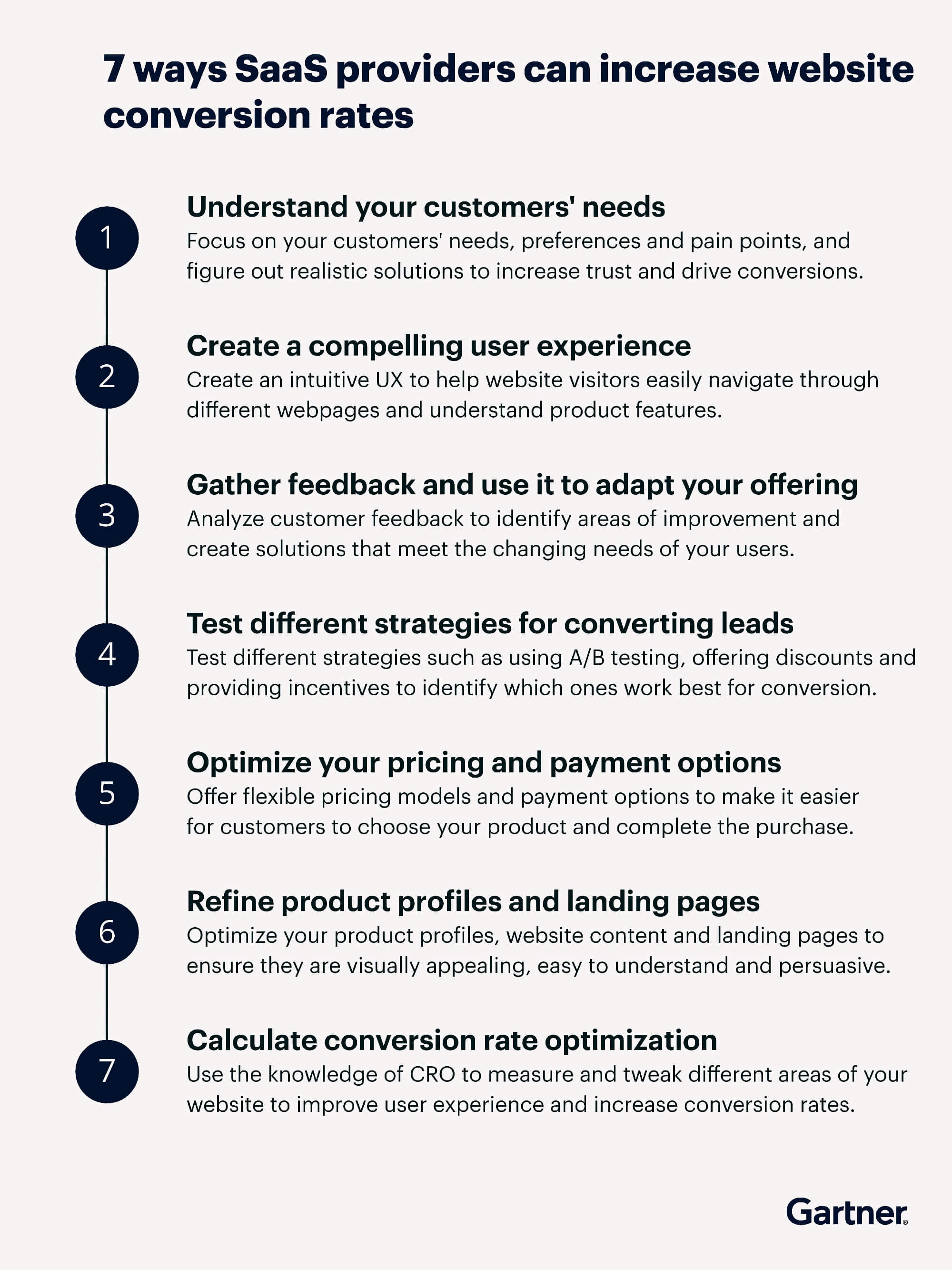
A product page won’t cut it in today’s fiercely competitive e-commerce environment to increase sales. The right tools and approaches must be used to improve your website’s conversion rates continuously.
You require the essential strategies and resources to improve the conversion rate of your product page. Here are some essential tools and methods to take into account:
Evaluating A/B
You may perform A/B testing on your product page by creating two distinct versions of the page and comparing the results to ascertain which version performs better.
This may help by highlighting the components of your page that work and those that need improvement.
Using specialised software or tools like Google Optimise, A/B testing may be carried out.
Heatmapping
Using software that monitors user behaviour, you may analyse how visitors interact with your product page using a technique called heat mapping. The most popular areas of the website, the most popular components, and user scroll patterns may all be seen with heatmaps.
You may use this information to discover your page’s weak points and make the necessary improvements.
Exit Intent Pop-Ups
Exit intent pop-ups are notifications on your product page when a user is ready to depart. They can be used to promote a subscription to your newsletter, offer a discount, or provide further information. Programmes like OptinMonster or Sumo can produce exit intent pop-ups.
Personalisation
Personalisation is adapting the product page to each user’s preferences and interests. This may be achieved by evaluating user behaviour using methods like machine learning or by drawing on knowledge of the user’s previous interactions with your website.
Personalisation could improve user experience and boost the chance that a transaction will be completed.
User Opinions/Reviews
User feedback is a successful conversion rate optimisation strategy. They provide testimonials and encourage the growth of client confidence. Sending consumers follow-up emails after a purchase or providing incentives like a discount on a future purchase might encourage customers to submit reviews.
Live Chat
Customers may receive immediate assistance and have any queries regarding the product answered via live chat. This may lessen friction throughout the purchasing process and increase the possibility of a sale.
Integrating live chat programmes like Intercom or LiveChat may add this capability to your product page. Increase sales by optimising your product page for conversion using these tools and methods.
It’s crucial to test and experiment to uncover what works best for your particular product and audience since something other than what works for one product might not work for another.
The Role of PPC Advertising in Conversion Rate Optimisation
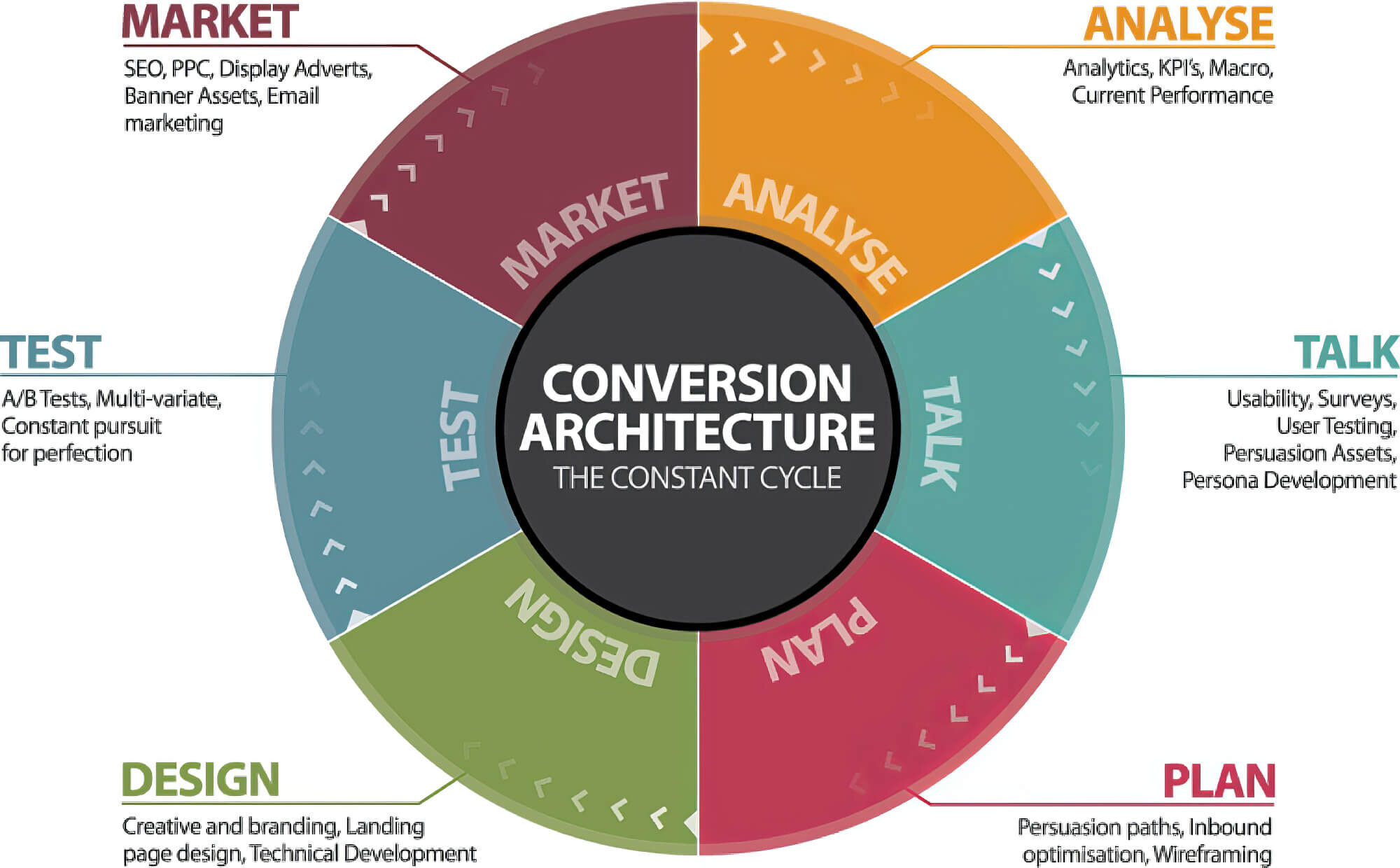
Pay-per-click (PPC) advertising effectively generates traffic to your product page and conversion rates. Here are some suggestions for how PPC advertising might make your product page better:
Specialised Traffic
You may target specific audiences with PPC advertising based on their demographics, interests, and habits. As a result, the customers you draw in with PPC advertising are more likely to be interested in your company’s goods and services and to make a purchase.
Data Gathering
Platforms for PPC advertising, like Google Ads and Facebook Ads, offer thorough statistics and information on the effectiveness of your adverts. Examining this data may help you identify the ads driving the most traffic and conversions, the most successful keywords, and the most persuasive ad copy.
You may use this information to enhance the functionality of your product page.
Ad Copy Analysis
PPC advertising enables you to test several ad wording iterations to see the most successful. You can figure out which material gets the most hits and conversions by experimenting with different headlines, descriptions, and calls to action.
The message on your product page may then be improved using the information provided.
Remarketing
You may target visitors who have already viewed your product page but have yet to buy using PPC advertising. Remarketing advertisements may be used to remind these consumers about your goods and nudge them back to your website to finish the transaction.
Cost-Effective
PPC advertising often provides better value compared to other forms. You only pay for actual clicks, saving on impressions that don’t lead to any clicks or conversions.
This makes it simpler to calculate ROI and maximise the impact of your advertising investment.
PPC advertising can boost your conversion rate and generate more sales by providing targeted visitors to your product page. It is a crucial tool for any e-commerce company wanting to optimise its product page since it allows you to test ad wording, target particular audiences, and get comprehensive data.
Bottom Line
You must optimise your product page to increase conversion rates and sales. By implementing the essential components and best practices covered in this article and using the appropriate tools and strategies, you can develop a product page that connects with your audience and encourages conversions.
In addition, you could utilise QR codes to improve your eCommerce product page’s call-to-action strategy by providing quick access to product information and promotions. Use a QR code generator to create a custom code, and place it prominently on your page for maximum effectiveness and higher conversions.
Keep in mind that improving your product page is a continuous effort. By regularly testing and analysing your page’s performance, you may find areas for improvement and make data-driven decisions that provide better results.
Collaborating with a marketing performance agency like sitecentre®; may provide additional knowledge and assistance to maximise your conversion rate and expand your business.
The success of your product page depends on providing everything a customer needs in one place. Clear visuals, detailed descriptions, user ratings and reviews, competitive pricing, and targeted promotions will all help to drive conversions.
By taking a comprehensive approach to your product page, you can ensure that customers have the information they need to make
FAQs
1. What is the importance of conversion rate optimisation for e-commerce businesses, and what does it involve?
Conversion Rate Optimisation (CRO) is essential for e-commerce companies to maximise their potential for online sales. It increases the number of visitors who accomplish a specific action, like purchasing, by improving the website’s or product page’s performance. This increases the proportion of website users who become purchasers.
2. What difference will a company proficient in marketing performance provide to help enhance its conversion rate?
By teaming up with a marketing performance organisation, you can acquire the knowledge and help required to devise and carry out an extensive conversion rate optimisation plan that aligns with your business’s objectives and generates concrete outcomes.
They can give beneficial counsel, execute A/B testing, apply ideal user experience (UX) design methods, and offer ongoing optimisation to help you consistently upgrade your product page and raise sales.

